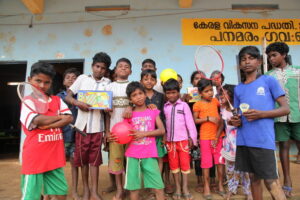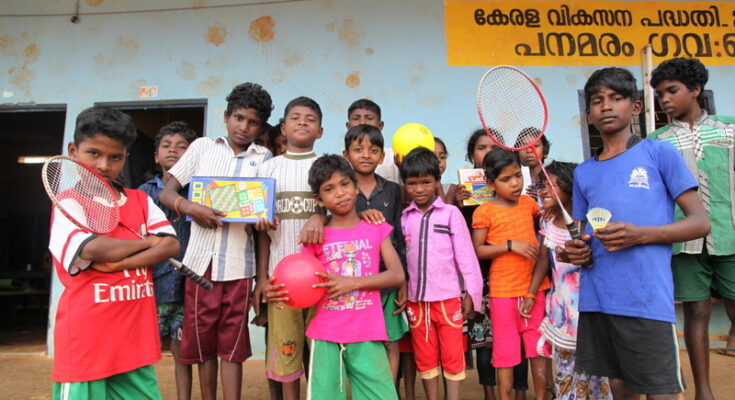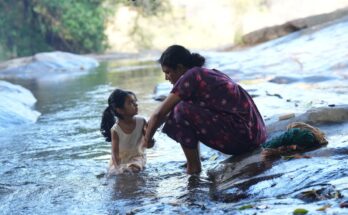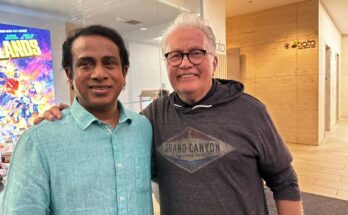World Vision India Reinforces the Importance of Coordinated and Effective Mental Health Response
World Vision India Reinforces the Importance of Coordinated and Effective Mental Health Response during Emergencies.
New Delhi, 22 February 2021 – World Vision India in association with CHRIST University and All India Disaster Mitigation Institute (AIDMI) conducted a study titled, “Accountability to the Affected Children with Focus on Psycho-Social Support in Kerala”. The key findings emphasized the need for psychosocial care and support inte rvention for victims of natural calamities. The study reinforces the concept of accountability for children in humanitarian settings and the need to factor in Child-Centric Disaster Risk Reduction plans.
It is a known fact that disasters cause widespread death and destruction. But what does not come to the fore is how disasters cause mental agony, trauma, and stress for the survivors. The trauma experienced by survivors, especially children, in post-disaster situations can lead to acute and long-term mental health and psychosocial impacts. World Vision India’s pilot project- Mental Health and Psychosocial Support (MHPSS) was carried out in 10 schools, covering 2119 students in the district of Alappuzha, Kerala. The project focused on providing psyc hos ocial care and support to disaster affected children and helped them to overcome the trauma unleased by the floods.

Moreover, children were given toys, indoor games and other play materials. “Managing our children and making them sit in one place are the most difficult things to do at the camp. Thanks to World Vision India. Now, our children have something to do throughout the day. We know where to find them. They will be always at the play area,” says Ambili, a mother of two.
“We got shuttle bats, snake and ladder, footballs for elder kids and smaller balls for younger kids. We have asked them to give us a carom board and volley ball,” says a happy Sijil, who studies in the 6th grade.
Ball passing is my favourite game so far. Unlike football, we can play it indoors, even if it is raining outside,” says Nithina, who studies in the fourth grade.
“Along with creating a platform to engage children at the relief camp, this child-friendly spaces also aim to provide psycho-social support to children and address child protection isuues, if any,” say T.C. Varghese, site Manager of relief response team in Wayanad.
Madhav Bellamkonda, National Director- World Vision India, said, ‘The study helped in highlighting the positive impact of providing psychosocial care and support to crisis-affected children. World Vision India has always been a pioneer among humanitarian agencies and takes pride in leading, piloting and implementing often-ignored themes under the umbrella of humanitarian assistance such as psychosocial care and support.”
Almost 7 million children were affected by the Kerala floods in 2018. World Vision India conducted the study to gather feedback from children on perceived gaps in post-disaster response, relief, rehabilitation and early rec overy. The study involved feedback from 200 children, 120 stakeholders and about 30 field-level officials and elected representatives about their perceptions on what worked well and which areas need to be strengthened. World Vision India also carried out a concerted programme on providing psychosocial care through group and individual counselling sessions with the flood affected children.
Major findings include:
* 84% of the children surveyed accepted that they were anxious and disturbed after the floods.
* 83% of the children surveyed said that the counselling sessions helped them accept their situation.
* 90% of the surveyed children reported that their knowledge and skills about the importance of mental health during disasters has improved after regular psychosocial interventions.
* 84% of the children reported that they had overcome the irrational fears of disasters due to the psychosocial counselling sessions.
* 86% of the surveyed children reported that they are confident in coping up with future extreme events
“Children have been often portrayed as passive and helpless victims. Consequently, Disaster Risk Reduction, including climate change adaptation often excludes children.”, said Major General Manoj Kumar Bindal, director- National Institute of Disaster Management (NIDM), Delhi during the report release. He further added that, “Child Centric Disaster Risk Reduction which is inclusive of the psychosocial care should be promoted as it empowers children. This approach also prepares them to protect themselves and generate positive changes within their families and communities. Child Centric Disaster Risk Reduction is a long-term strategy for sustainable and resilient development for shocks and effective recoveries”.
The programme covered the provision of professionals delivering psychosocial care/ counselling, fostering awareness and acceptance of counselling in society. Focus was also given to better coordination between the non-government and government entities, embedding counselling sessions into the school curriculum. Special focus was also extended towards the needs of children with disabilities. The intervention programmes were also in line with the mandate of Sendai Framework for Disaster Risk Reduction (SFDRR), which lists mental health as an explicit outcome of Disaster Risk Reduction (DRR). It also calls for the expansion of the gamut of DRR activities to embed mental health outcomes in all assessments, impact-based forecasting, improving early warning and response capacities, better resource management, and knowledge-creation and sharing.
The need for psychosocial care was identified in a participative way through a need analysis and counselling sessions. Students covered under these counselling sessions shared that these sessions helped them, in regaining their mental composure.
About World Vision India
World Vision India is one of the country’s largest child-focused humanitarian organisations. With over seven decades of experience at the grassroots, we employ proven, effective development, public engagement and relief practices empowering vulnerable children and communities living in contexts of poverty and injustice to become self-sufficient and bring lasting change. We serve all children regardless of religion, race, ethnicity or gender as a demonstration of Christ’s unconditional love for all people. World Vision India works in 143 districts (as on 1st Oct, 2020) impacting around 26 lakh children and their families in over 6200 communities spread across 23 states and 3 union territories to address issues affecting children, in partnership with governments, civil societies, donors and corporates.
For more information, go to https://www.worldvision.in/




